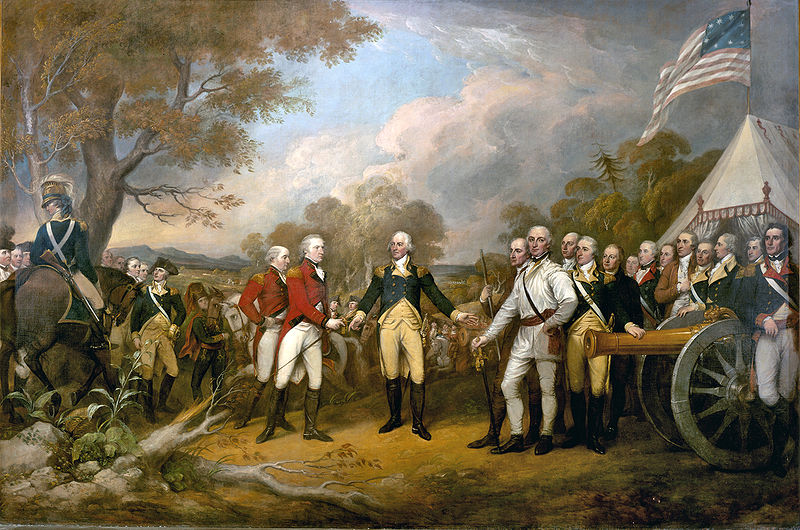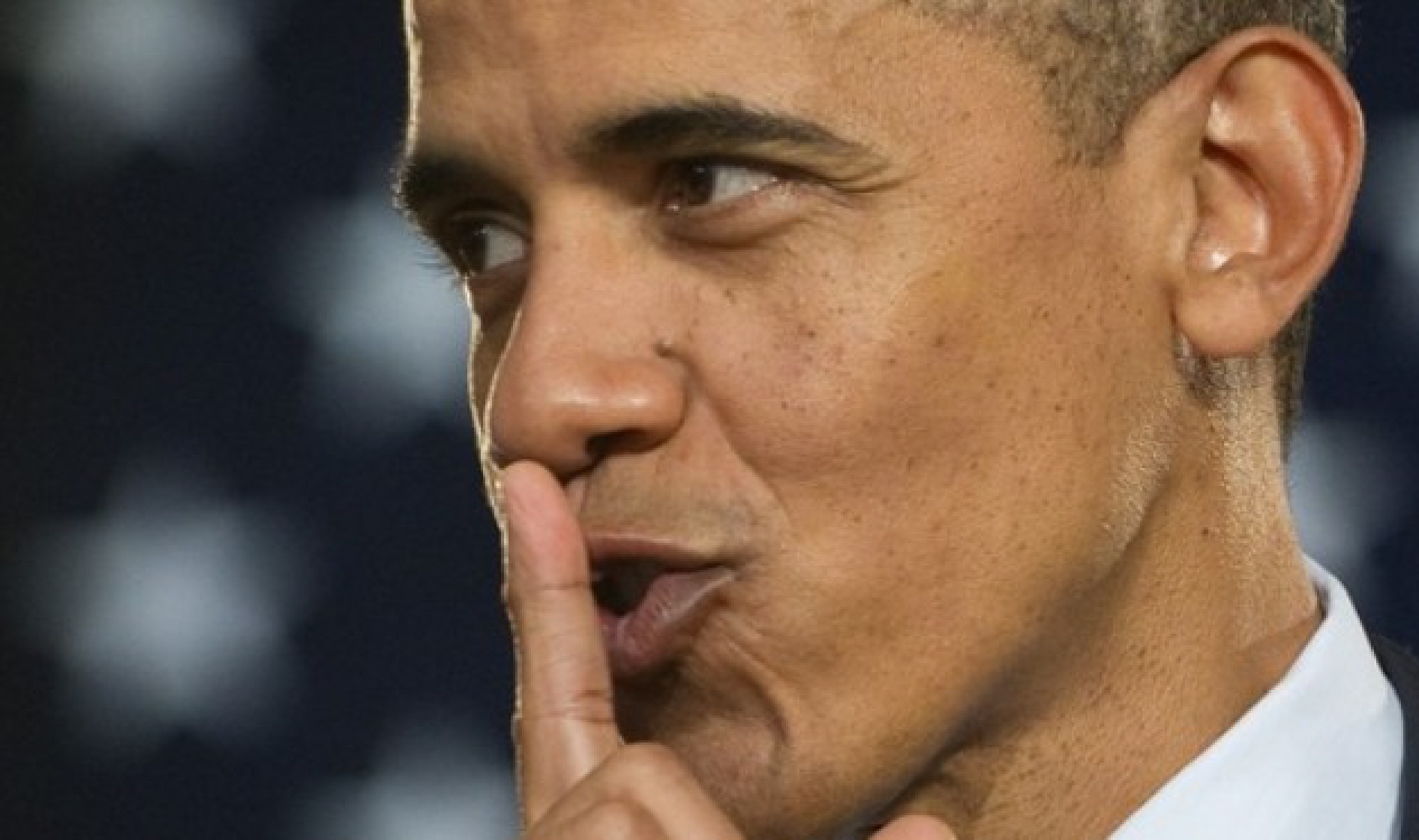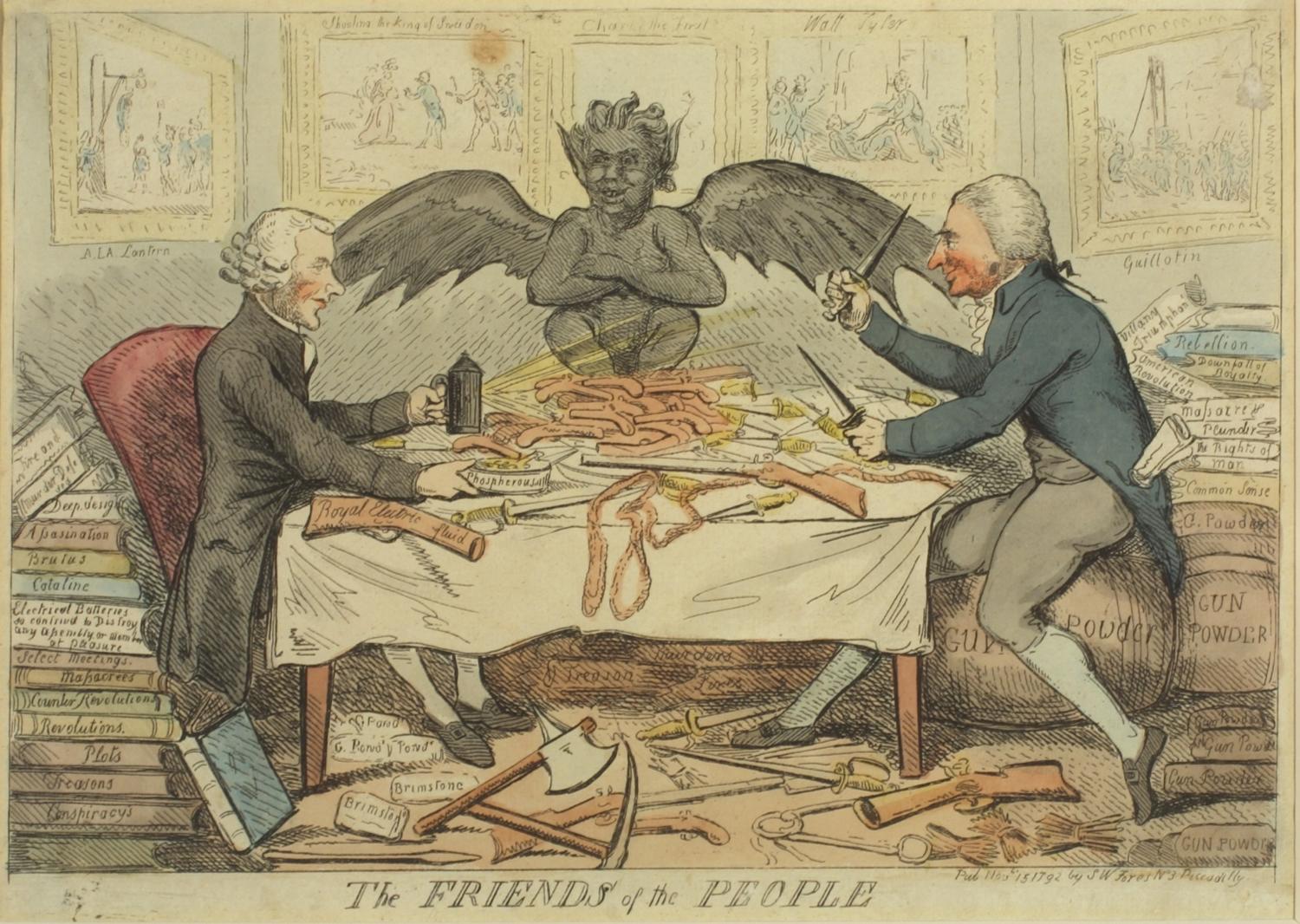
Surrender of General Burgoyne
The Foundation Is Already Laid
The title of this article may sound auspicious, but the seeds for this revolutionary reification have already been sown with the dawning of the digital age of mass communication. What is only just now coalescing in the crucible of various cultures, is the ability for everyone to finally be heard, and equally importantly – to hear others.
Whether its for political, social, entertainment avenues, the same thing is happening. The world is becoming a much closer, smaller, digestible place, in the human mind. Still massive and incomputable on the micro scale, we can at least envision an entire planet, and quickly learn and communicate with people from anywhere in the world, across cultural and even language boundaries, using the simple tools of the digital revolution.
These same tools that only in the past decade have become widely available, can now be used to bring about the truest, most equitable democracy in history, finally following only a real majority, a significant majority, not a simple majority, but a supermajority of real actual voters voting on issues they themselves submit, into a Twitter/Reddit style WikInitiative Ballot Issue Database.
Balloting Issues and Voting From the Comfort Of Your Home
Imagine sitting in the comfort of your own home, watching television, checking your twitter and Facebook accounts, email, watching videos on Youtube… imagine using that same simplicity, to sit there in your own relaxing environment of your choice, and visiting the WikInitiatives Ballot Issue Database, from your cell phone, from your computer, your Ipad, or whatever device from which you can attain access to the internet.
On the main page will be the most popular initiatives, the ones closest to approaching the supermajority status. Everyone can tune in, in real time and see the status of any balloted issue, whether it’s national, regional or municipally weighted. Everyone can vote on issues at any time. You can even change your vote, because it wouldn’t affect the capacity of the real-time reporting of the public will percentage in support of that issue.
People do change their minds.
And they ought to change their minds, in some instances, as new information becomes available, and they approach an old problem in a new way.
Now these ballotable issues that become popular, are always on the table, eternally – there is no scrapping of any issue, just absolute levels of popularity for that issue measured directly by the number of people who put through enough effort to single out that issue from the sea of others, and support it. And only those people.
The Default Position Ought To Be Erring On The Side Of Liberty
With the system in place now, people who don’t vote, whether out of ignorance, infirmity or indifference, are automatically subtracted from any representation whatsoever, even if their abstention is because they declare they support none of candidates. The system in place, you must vote, and for people, a step removed at least from the issues themselves, if you want to attempt to stop a minority from legislating away our liberty.
So the default position is that you must act, in order to stop all this bad legislation, fostered by minority interests, often wealthy corporate interests writing the legislation themselves and gifting it to the politicians they manipulate.
The default position should be, we create no law in any matter, unless a significant majority agree, a supermajority. We need at least a doublemajority, if we want to err on the side of liberty, rather than tyranny of a simple majority of the fraction of the public that actually votes, literally then, a tyranny of a minority, at all times, when any “party” is in power.
Supermajorites Aren’t A New Idea
Even the United States senate employs supermajorities, but only for whatever they deem matters of special importance, where more than a mere simple majority is absolutely necessary. Some corporations use supermajority procedures as well.
When you have simple majorities that only represent (and poorly represented by politicians) 51% of the… say… 60% that voted (as in the presidential election of 2012), you have half of that 60% of the public that voted, which is 30% of the total public, actually creating laws for the rest of us.
With the default position being that you must mobilize your efforts in order to stop bad legislation, liberty erodes and inefficiencies are created, of misdirected human labour towards fulfilling the needs for manpower created by the government’s unnecessary, unpopular, minority represented legislation, that they levy taxes on all of us to pay for, with strokes of their pens.
The Digital Age Transforms Democracy
Well it’s time to move out of the inefficient vehicle of democracy of the past, from the days of horses and carts, muskets, negro slaves, no female suffrage, mail by pony express, a snail’s pace of existence compared to the inundation realized today, offered by the industrial and now digital revolution.
There is no need for representatives who rarely even represent us, more than their own self interests (naturally), to make these pompous and ritualistic, pretentious, singular vote on an issue not even put forth by a majority, let alone a supermajority, of the public.
The fact that they are representatives of so many people plays on the near universal instinct for love, respect and admiration from other people – a popularity contest of people, rather than the issues they purport to represent.
Voting for people, and hoping that they vote on your behalf, is a redundant, unnecessary complication, that the digital age has at long last precluded, leaving democracy in the hands of the people, as the actual word itself means.
With an easily accessible online WikInitiative Ballot Issue Database, that anyone can log into (using multi-point biometric anonymous encrypted identification system, discussed also on this website) what is actually important to real people can finally be voted on by real people, far better than these teams of bureaucracies, layers of inefficiency, would ever be able to do.
Easy as Twitter and Facebook. Like that Law, up it goes.
Abstaning Is An Opinion
A key component is that the default position is abstention. You don’t have to log in and use your time and effort to ever vote “no” on any issue, because your starting position is no, naturally. In this manner, no minorities would ever be able to pass any legislation that a supermajority didn’t also agree to, and go out of their way to say that they agreed to it.
Erring on the side of liberty, with respect to law creation.
Using supermajorities to buffer against any tyrannies of minorites, especially moneyed interests as we have now, will propagate a new era of liberty, as less new laws are passed by the supermajority and old laws stricken down, that don’t meet the new supermajority test. Old laws too, the ones already created vastly by minority moneyed interests, will begin the re-ratification process like any other balloted issue, in that the default position from everyone on that issue, is “no” unless they mobilize their efforts to support it.
The Marketplace of Ballot Initiatives
With this WikInitiative Ballot Issue Database, everyone could have access to every law, every balloted issue, and view their real time support by the public, and enter their own issues, hash tag them for classification purposes, and add their voice directly into the Marketplace of Supermajority Plebiscitary Initiatives.
And don’t fall prey to the calls from those who stand to lose their power and influence, that there is any kind of tyranny of a supermajority. The only real tyranny in democracy, is rule by simple majority, of a fraction of the public, which is always a minority. And always a tyranny.
Every law must withstand the supreme scrutiny of the Constitution and Bill of Rights that grants all citizens inalienable rights that no law created could successfully deprive them of. The very reason that the Constitutions and Bills of Rights are ratified is to protect minorities from any tyrannical majority.
They are agreed upon axioms of what society consists of, what the limits on the powers of government are, even a supermajority plebiscitary democracy.
The Real Tyranny is Rule By Simple Majority
The only real tyranny is governing by inefficient representation, using simple majorities that are actually minorities, because they don’t include abstentions, through a ballot system that is prohibitively accessible to most people.
Real time, instantaneous democracy can now be had, where problems are solved collectively, drawing from the vast pool of visionary and creative people from all corners, regardless of their perceived cultural status, and a new equality of access to the government process, can finally be afforded for the first time in history, with the digital revolution.

